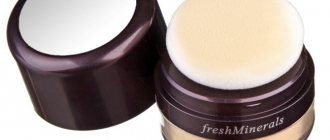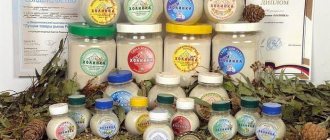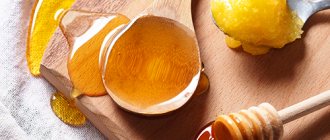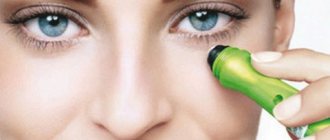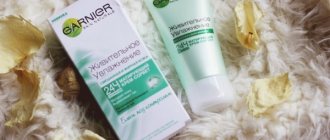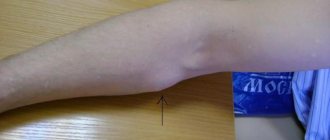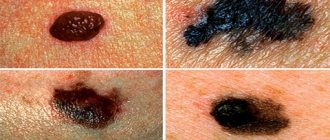I have a question: should you store cosmetics in the refrigerator?
Beauty experts regularly remind us that if a skincare or makeup product doesn't work (or doesn't work as well as you'd like), the problem may well not be with the product itself, but with improper storage instructions. You will be surprised, but some jars that you think would look great in the bathroom do not tolerate dampness and moisture. And others, which you put in the refrigerator (“to preserve better”), actually dream of the day when they will be placed at room temperature.
Let's talk about the last situation. Is it really better to store cosmetics in the refrigerator? Excluding products for skin care around the eyes, which have a magical cooling effect. Or is all this nothing more than the tricks of marketers?
In fact, most beauty experts agree that storing cosmetics in the refrigerator is not only unnecessary, but even undesirable.
“In general, cosmetics are meant to be stored at room temperature,” David C. Steinberg, founder of personal care consulting firm Steinberg & Associates, tells Good Housekeeping. — And if you keep lipstick in the refrigerator, then you do so at your own peril and risk, because the manufacturer does not promise you that after being in a low temperature the product will retain its shape and texture or, for example, will give off the pigment as well as before "
Where and how to properly store cosmetics: general rules and important tips
Want to guess what's on your bathroom shelf? At a minimum, cream, serum, washing gel, micellar water, toner, tube with enzyme peeling. And in the cosmetic bag there are lipstick (three), mascara (two), foundation and BB cream, as well as blush, primer, highlighter... Don’t cook the pot!
In general, there is a lot of cosmetics. And it’s good if each product is used and ends before the expiration date. It's bad when there are too many jars. In this case, you inevitably put something off for later, forget about something. And when you remember, the product may well be expired.
What's all this for? Besides, it’s time to figure out: how long can cosmetics be used and how to store it correctly so as not to shorten its service life?
Have you been checking out your makeup bag lately? © iStock
All beauty products have a certain shelf life.
- As long as the packaging is not opened, the product retains its qualities and properties for exactly as long as the manufacturer claims.
- After opening, when the seal of the package is already broken, the shelf life is reduced. When reacting with air, oxidation processes and bacterial proliferation begin to occur inside the cream, invisible to the eye.
That is why we advise you to pay attention to the following parameters when purchasing a product.
- Date of manufacture. Usually indicate the month and year.
- Expiration date. Be careful here: if the product is good for less than 30 months, such information is indicated; if more than 30 months, manufacturers are not required to provide an end date.
- An icon with an open jar and the number of months, for example, 6M, 12M, 24M. The number means how long the product can be stored after opening - no more than 6, 12 or 24 months, respectively.
As a rule, organic cosmetics last no more than 6 months after you start using them, but the shelf life of other skin care products varies from 12 to 24 months.
On the packaging of the product, look for an icon with an open jar indicating the number of months. © iStock
But even if you follow all the manufacturer’s recommendations regarding shelf life and use of cosmetics, it is important to understand that any cream, fluid, serum or foundation can deteriorate faster if stored incorrectly.
The most convenient location for your beauty arsenal is the bathroom. There we start the day with washing, and end there with applying night care.
But convenient does not mean correct. The “living conditions” for cosmetics there are not the most favorable:
- high humidity;
- frequent and sudden changes in temperature.
All this leads to the fact that creams can deteriorate ahead of time. Therefore, we suggest storing only shower gels, scrubs, shampoos and hair conditioners, as well as facial cleansers in the bathroom.
All beauty products have a certain shelf life. © iStock
Another common misconception is about the benefits of storing creams in the refrigerator. This is unsafe for the integrity of beauty formulas, and therefore for your skin, which will interact with these formulas.
Low temperatures transform the properties of ingredients:
- solubility;
- structure;
- particle sizes.
After cooling, textures may separate, change color and smell.
Creams with SPF lose their properties most quickly under the influence of cold: crystallization of filters under the influence of low temperatures reduces their effectiveness.
Perhaps the only thing that can be put in the refrigerator for 5-10 minutes before use are eyelid patches and a fabric mask. If you need to quickly refresh your skin and remove signs of fatigue.
Sheet mask “Comfort” with chamomile extract, Garnier
© Garnier
A mask soaked in gel with chamomile extract, hyaluronic acid and moisturizing serum instantly smoothes the skin, improves its tone and smoothes out wrinkles. After using the product, the skin looks fresh and rested.
Place eye patches or fabric mask in the refrigerator before use. © iStock © iStock
Now let’s look in more detail at how to store this or that product.
Cream
The best choice for cream jars is the darkest place in the room (cosmetics organizer, box, container or cabinet with a door).
The optimal storage temperature is 15–25°C. Hypothermia does not benefit the funds. You can put the cream in the refrigerator only for a few minutes if a tonic effect is needed.
Moisturizing cream for dry skin Maxi:hydrability, Shu Uemura
© Shu Uemura
It has a light and comfortable texture, combining the effects of lotion, essence and moisturizer. Perfectly moisturizes even very dry skin and does not leave an oily sheen. Quickly absorbed.
Eye cream Nera Extrema, Giorgio Armani
© Giorgio Armani
The basis of the cream is a special mineral complex Obsidian, which takes care of the delicate and sensitive eyelid area - moisturizes, nourishes, smooths out wrinkles.
Cleansers
Cleansers (gel, foam, mousse, scrub, peeling) can be stored in the bathroom. Make sure to keep the lid of the product tightly closed after use. Otherwise, high humidity and contact with warm air will create a favorable environment for the growth of bacteria.
Refreshing cleansing gel Pureté Thermale, Vichy
Suitable for use with very hard water - it softens its effect and copes well with all types of contaminants. After use there is no feeling of tight and dry skin.
Cleansing foam for dry and sensitive skin Crème Mousse Confort, Lancôme
© Lancôme
The foam is suitable for very sensitive and dry skin. Rose extract and rosehip oil promote soft and gentle cleansing.
Pineapple Papaya Facial Scrub, Kiehl's
The scrub contains the best exfoliating ingredients - fruit acids of pineapple and papaya plus apricot kernel powder. They gently break down, exfoliate and remove dead cells from the surface of the skin.
The main rule for storing decorative cosmetics is to ensure minimal contact with the skin (your fingers), as well as air and sunlight. In this case, the product will last longer.
Consider buying a special organizer or box with dividers - they are convenient for storing eye shadow, lipstick, blush and powder so that they are always at hand.
Compact makeup products
Eye shadows, blush, and powder can be stored the longest - these are the least “demanding” cosmetics, they have a fairly long lifespan. Just remember to wash your brushes, sponges and applicators with special cleansers.
Compact powder Poudre Compacte Radiance, Yves Saint Laurent
The advantages of this powder are obvious: it makes the face radiant, mattifies, and fixes makeup. Skin looks rested and fresh all day.
Concealer
Be careful with him. If the product has a sharp, unpleasant odor, throw it away without regret - it is no longer suitable for use.
Long-lasting foundation Infaillible 24h “Matte finish”, L'Oréal Paris
© L'Oreal Paris
It has a mattifying effect, does not interfere with skin breathing, and thanks to the new formula allows you to create very light makeup. The thin veil is practically not felt on the skin.
Pomade
Store it in a cool, dark place. Close the case well each time after use to minimize exposure to air.
An unpleasant rancid smell (even if the shelf life has not yet expired) indicates that the lipstick should be thrown away.
Each time after using lipstick, close the case well to minimize contact with oxygen. © iStock
Mascara
The shortest shelf life of mascara is only 6 months. Continuing to use it longer, you risk getting conjunctivitis - inflammation of the eye mucosa caused by pathogenic bacteria.
If you are a fan of manicure and collect polishes from limited collections, then most likely new bottles are quickly pushing old ones off the shelf.
Now imagine this situation: you found in the bins the same color that blew up the catwalks two years ago, and you are going to paint your nails with it. It won't work.
Nail coatings last 1–1.5 years. Then the varnishes most often delaminate and can no longer be used.
Nail coatings last 1–1.5 years. © iStock
You are quite capable of extending the life of any cosmetic product, as long as it has not expired. To do this, you must follow several rules.
- After using the product, close the jar (tube, bottle) tightly to prevent air and dust microparticles from getting inside.
- Apply face and eyelid creams with a special spatula or cotton swab.
- Wash your makeup spatula, brushes and sponges regularly to minimize the growth of bacteria in open jars/cases/bottles.
- Store cosmetics in a dark place , avoiding direct sunlight, at a temperature not exceeding 25°C.
Use a special spatula or cotton swab to apply cream for the face and eyelids © iStock
Unsuitable cosmetics are hard to miss. She changes:
- smell;
- color;
- consistency.
Even if the product looks perfect, but it’s time to throw it away, get rid of the expired product if you don’t want to expose yourself and your skin to unnecessary risks.
European legislation does not have the concept of an expiration date, but the permissible storage time after opening the package must be indicated. Russian legislation does not provide for the need to indicate storage periods after opening. According to Tech. According to TR CU Regulation 009/2011, the following must be stated on the packaging:
- date of manufacture (month, year) and expiration date (months, years);
- or the inscription “best before” (month, year) or “use before” (month, year).
There are some products that indicate the expiration date of the product after opening the package and special storage conditions that differ from the standard ones. Standard storage conditions:
- Storage temperature for liquid products is not lower than 5°C and not higher than 25°C;
- storage temperature for toilet solid soap is not lower than minus 5°C;
- for other perfumery and cosmetic products - not lower than 0°C and not higher than 25°C in the absence of direct exposure to sunlight.
For all products m Real Pomegranate, Tony Moly; face mask Animal Mask, Berrisom; Cool Eye Stick, Tony Moly; eye patches Gold Racoony, Secret Key and Black & Gold, Beautydrugs.
But what can you put in the refrigerator door? For example, fresh organic masks. Also, a nice additional option will be the cooling effect of patches or eye cream.
To prevent sunscreens from losing their properties after a day under the scorching sun, they can also be stored in a cool place.
And from heat above 25 degrees in the absence of air conditioning, you should hide all creams, lotions and serums.
Storage in a dark, dry place is recommended, for example, for products with vitamin C, because sunlight reduces their effectiveness. Pressurized aerosols such as hairsprays, deodorants and thermal water should not be placed on a windowsill - they are explosive.
Ampoule serums and fabric masks are designed for one use; their formula does not imply prolonged contact with air. If there is more essence in the ampoule than needed, and the mask is soaked too generously, there is no need to hide the leftovers in the refrigerator. It’s better to rub the residue into the skin of your neck, arms, and décolleté.
And in general, do not deprive yourself of the pleasure of admiring your cosmetic abundance. Feel free to store cosmetics on shelves in the bathroom, on the side of the bathtub, on the dressing table or chest of drawers.
Source: //lady.mail.ru/article/491926-hranenie-kosmetiki-dlja-uhoda-za-kozhej-otvechaem-na-voprosy/
Eye creams and lotions - yes
“You can keep lotions in the refrigerator, but it probably only makes sense to do so in the summer,” says Mary Clarke, an analyst at the Guy Harvey Research Institute. — The only thing I always keep in the cold is eye cream. When I feel like my eyes are puffy or have bags under my eyes, it feels so good to put something cool on them.”
Cosmetic chemist Susan Raffy agrees, noting that eye creams and gels, as well as lotions, toners, masks and serums with natural ingredients can be stored in the refrigerator if you prefer or if they have a special mark on them . Several studies have shown that when cold, these foods are better for reducing swelling and can potentially improve blood circulation.
Nail polish - no
But it’s best to store nail polish at room temperature, not in the refrigerator. Yes, refrigerating the polish can indeed extend its shelf life a little, but there is one problem. “If you store nail polish in the refrigerator, its viscosity will gradually increase, which can lead to product instability and separation,” warns Birnur K. Aral of GHRI. “This ‘phase separation’ can be dealt with by shaking the polish, but you still have to wait for the product to heat up to apply it evenly.”
How to extend the shelf life of cosmetics?
- Do not throw away the paper and plastic gaskets that cover the “neck” of jars with cosmetics - they prevent the penetration of air and moisture. Thanks to them, cosmetics will remain suitable for use longer.
©Getty
- Apply cream products not with your fingers, leaving bacteria and sebum particles inside the jar, but with special spatulas.
- Screw the lids of tubes, jars and bottles tightly.
©Getty
- Give preference to cool places to store cosmetics. And those products that, according to the rules, can be stored in the refrigerator, leave them there.
Find more tips on storing cosmetics. Do you know everything about ways to store cosmetics? Where are your beauty products at home? Tell us in the comments.
Perfumery - under no circumstances
Ask any perfume maniac, and he will tell you that perfume is not only not recommended, but even prohibited from being stored in the refrigerator. Moreover, we are talking here about eau de toilette, perfumed sprays, classic perfumes and concentrated selectives all at once. Why? The answer is simple: the fact is that a cooled aroma can lose part of its smell, so when you leave the apartment you will notice that in the perfume that you fell in love with for its spicy-chocolate trail, you can’t hear either pepper or chocolate notes (but only “flat” amber or too straightforward vetiver).
Natural cosmetic
Typically, such cosmetics are not stored for long and require special storage conditions. Natural ingredients can deteriorate from high temperatures and quickly oxidize in air. Like vitamin serums, natural cosmetics should be kept cool.
In order for medicinal cosmetics to be effective, they must be stored according to all the rules; temperature conditions are especially important. Many active components stop working when overheated. Read the instructions for the medications carefully and do not leave them on sunny surfaces.
Where to store cosmetics if there is no dressing table?
Having a separate table with a large mirror, drawers for cosmetics and other little things is what many girls dream of. However, not everyone can afford to add it to their interior. This means that you have to look for other storage places for cosmetics.
© site
A modest supply of beauty products can fit into your makeup bag, but it's not a one-size-fits-all solution. For those who have caring creams for different occasions, a wide variety of palettes, lipsticks and pencils, this option is not suitable.
© site
Pay attention to professional cases - inside there are many compartments and pockets in which it is convenient to place a wide variety of products. In addition, they are closed, which guarantees that cosmetics are stored in a dark place - according to all the rules.
©Getty
You don’t have to hide cosmetics inside such boxes, but choose transparent containers with shelves and compartments for packages of different sizes and shapes.
©Getty
If you have a free shelf or drawer that can be completely dedicated to beauty products, you can put small boxes there, filling each of them with products sorted by type.
What should not be stored in the refrigerator
However, it should be remembered that not all cosmetics like to be next to vegetables and dairy products. Dr Philippa Lowe warns that most inexpensive face creams contain preservatives and should be stored at room temperature.
Moreover, certain active ingredients penetrate the skin better if the cream is not overcooled. For example, the oils contained in the products can harden when exposed to low temperatures. And if you freeze cosmetics with vitamin C or retinol, they will lose their beneficial properties and will no longer be as effective as before.
Foundations and mascaras are also best stored at room temperature. Lipstick that has been left in the cold will smudge and spread unevenly when applied.
Perfume also has no place in the refrigerator. Yes, light and heat are the worst enemies of perfumes, but it is better to store them in a dark closet, where the air temperature is only a few degrees lower than room temperature. The molecules of essential oils are so fragile that they simply “will not survive” in the cold.
Nail polishes are also on the anti-refrigeration list. Under the influence of low temperatures, water condensation forms in the bottle. In addition to the fact that the varnish is applied worse to the nails, its shelf life is also reduced.
Now you know where to store cosmetics - which products will retain their beneficial properties better in the refrigerator, and which ones are better left on the dressing table.
Perfume also has no place in the refrigerator. Yes, light and heat are the worst enemies of perfumes, but it is better to store them in a dark closet, where the air temperature is only a few degrees lower than room temperature. The molecules of essential oils are so fragile that they simply “will not survive” in the cold.
Where should creams not be stored?
1. The bathroom is considered the worst place to place creams. You should not store cosmetics here. Due to humidity and temperature changes, the composition of the product begins to deteriorate, only if it is not a hair gel or shampoo. Since these products are used constantly, they do not have enough time to lose their beneficial properties. When the expiration date expires, there will be no harm from using it. After all, these products are used for washing; the skin does not absorb them. The shampoo can be easily washed off.
2. Cream used for acne should not be left with the lid open. This product contains fruit acids, zinc, and herbal extracts. When each of these components comes into contact with the external environment, they rapidly degrade. In this regard, creams are packaged in sealed metal tubes and bottles with dispensers.
3. The mattifying cream contains different types of talc. When exposed to air, it degrades, so before opening the tube, you need to find out how to store creams.
Refrigerate my peel: should I store cosmetics in the refrigerator?
Special refrigerators for cosmetics are gaining popularity among beauty geeks. The toy minibar-sized devices brighten up your dressing table and keep your products pleasantly cool - but are they practical? Let's figure it out together with cosmetic chemists.
One of the latest trends in storing cosmetics, especially care products, is refrigeration. It's becoming increasingly common in skincare communities to see photos of small refrigerators filled with jars of creams and serums, and discussions about the ideal temperature and storage settings.
Experts agree: refrigerators for cosmetics are more of a nice trinket than a truly necessary item. Preservatives are present in cosmetic formulas for a reason - they ensure the safety of the product at room temperature. Technologist at the BASF Cosmetic Raw Materials Division, Nina Makhova, explains that the manufacturer necessarily tests the formula for stability throughout the entire expiration date indicated on the packaging, so refrigeration storage is not required. In addition, refrigeration can even shorten the lifespan of some products, such as sunscreens.
However, if you really like the cooling effect, you are unlikely to spoil cosmetics suitable for cooling by storing them in the refrigerator. A chilled face mist will certainly come in handy on a hot day, and cold eye patches will be more effective at reducing puffiness.
Makeup artist storing cosmetics in the refrigerator
I have a long history with cosmetics that need to be stored in the refrigerator - usually natural, made with a minimum amount of preservatives, when the manufacturer directly asks you to store it in the refrigerator. Then I acquired a number of masks in the form of gel or sorbet, which are also much nicer to apply cold.
How to store anti-aging face cream
Anti-aging drugs have the most unstable components:
- retinol;
- plant extracts;
- vitamins A, C.
Oxygen produces the oxidation of vitamin C and the breakdown of retinol, so it is detrimental to these substances. To prevent the beneficial properties of the anti-aging drug from quickly disappearing, it is placed in a tight jar or metal bottle. The walls of the jar used must be thick. Manufacturers specifically provide such protection so that fewer preservatives have to be added.
To extend the shelf life of their favorite cosmetics, many women are ready to do anything... Even to keep it in the refrigerator! But which of us, putting another jar of cream next to a carton of milk, thinks about whether it’s actually possible to do this? Which beauty products will benefit from low temperature, and which ones are strictly prohibited, and how to properly store cosmetics at home, read the material on the site.

